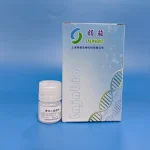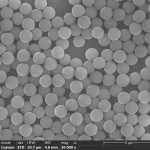Relative Analysis of the Application of Polystyrene Microspheres and Polystyrene Carboxyl Microspheres in Biotechnology – Focusing on Nucleic Acid Extraction.
(LNJNbio Polystyrene Microspheres)
In the area of modern-day biotechnology, microsphere products are widely utilized in the removal and filtration of DNA and RNA because of their high details surface area, good chemical stability and functionalized surface residential or commercial properties. Amongst them, polystyrene (PS) microspheres and their obtained polystyrene carboxyl (CPS) microspheres are just one of both most extensively researched and used products. This post is offered with technical assistance and information analysis by Shanghai Lingjun Biotechnology Co., Ltd., intending to systematically contrast the efficiency distinctions of these two sorts of materials in the process of nucleic acid removal, covering key indicators such as their physicochemical homes, surface area adjustment capability, binding performance and recuperation rate, and highlight their appropriate circumstances via speculative information.
Polystyrene microspheres are homogeneous polymer bits polymerized from styrene monomers with great thermal stability and mechanical toughness. Its surface is a non-polar structure and generally does not have active functional teams. Therefore, when it is straight utilized for nucleic acid binding, it requires to depend on electrostatic adsorption or hydrophobic activity for molecular fixation. Polystyrene carboxyl microspheres introduce carboxyl useful teams (– COOH) on the basis of PS microspheres, making their surface area efficient in more chemical coupling. These carboxyl teams can be covalently adhered to nucleic acid probes, healthy proteins or various other ligands with amino teams with activation systems such as EDC/NHS, thus accomplishing more steady molecular fixation. Therefore, from an architectural point of view, CPS microspheres have more benefits in functionalization capacity.
Nucleic acid removal generally includes steps such as cell lysis, nucleic acid release, nucleic acid binding to solid phase service providers, washing to get rid of pollutants and eluting target nucleic acids. In this system, microspheres play a core role as solid phase providers. PS microspheres mainly rely upon electrostatic adsorption and hydrogen bonding to bind nucleic acids, and their binding effectiveness is about 60 ~ 70%, yet the elution performance is low, only 40 ~ 50%. On the other hand, CPS microspheres can not just use electrostatic effects yet additionally attain even more solid fixation via covalent bonding, decreasing the loss of nucleic acids during the washing process. Its binding effectiveness can get to 85 ~ 95%, and the elution efficiency is likewise enhanced to 70 ~ 80%. In addition, CPS microspheres are additionally substantially better than PS microspheres in terms of anti-interference capability and reusability.
In order to confirm the efficiency distinctions in between both microspheres in real procedure, Shanghai Lingjun Biotechnology Co., Ltd. carried out RNA extraction experiments. The experimental examples were derived from HEK293 cells. After pretreatment with standard Tris-HCl barrier and proteinase K, 5 mg/mL PS and CPS microspheres were used for removal. The results showed that the average RNA return drawn out by PS microspheres was 85 ng/ Ī¼L, the A260/A280 ratio was 1.82, and the RIN value was 7.2, while the RNA return of CPS microspheres was boosted to 132 ng/ Ī¼L, the A260/A280 proportion was close to the suitable value of 1.91, and the RIN value got to 8.1. Although the procedure time of CPS microspheres is slightly longer (28 mins vs. 25 minutes) and the cost is greater (28 yuan vs. 18 yuan/time), its removal quality is considerably enhanced, and it is better for high-sensitivity discovery, such as qPCR and RNA-seq.
( SEM of LNJNbio Polystyrene Microspheres)
From the viewpoint of application circumstances, PS microspheres appropriate for massive screening jobs and initial enrichment with low demands for binding uniqueness due to their inexpensive and straightforward procedure. Nevertheless, their nucleic acid binding capacity is weak and conveniently impacted by salt ion concentration, making them inappropriate for lasting storage space or duplicated use. In contrast, CPS microspheres appropriate for trace sample extraction because of their abundant surface area useful teams, which assist in further functionalization and can be utilized to construct magnetic grain discovery kits and automated nucleic acid extraction systems. Although its prep work procedure is reasonably intricate and the expense is reasonably high, it reveals stronger flexibility in scientific research and medical applications with stringent needs on nucleic acid removal effectiveness and purity.
With the rapid growth of molecular medical diagnosis, genetics modifying, liquid biopsy and various other fields, higher needs are put on the performance, pureness and automation of nucleic acid extraction. Polystyrene carboxyl microspheres are slowly changing typical PS microspheres as a result of their exceptional binding efficiency and functionalizable features, coming to be the core choice of a brand-new generation of nucleic acid removal materials. Shanghai Lingjun Biotechnology Co., Ltd. is additionally constantly maximizing the particle dimension circulation, surface area density and functionalization efficiency of CPS microspheres and developing matching magnetic composite microsphere products to meet the needs of scientific medical diagnosis, scientific study institutions and commercial consumers for high-quality nucleic acid extraction services.
Provider
Our products are widely used in many fields, such as medical testing, genetic testing, university research, genetic breeding and more. We not only provide products but can also undertake OEM, ODM, and other needs. If you need polystyrene microspheres carboxyl, please feel free to contact usĀ atĀ sales01@lingjunbio.com.
All articles and pictures are from the Internet. If there are any copyright issues, please contact us in time to delete.
Inquiry us


